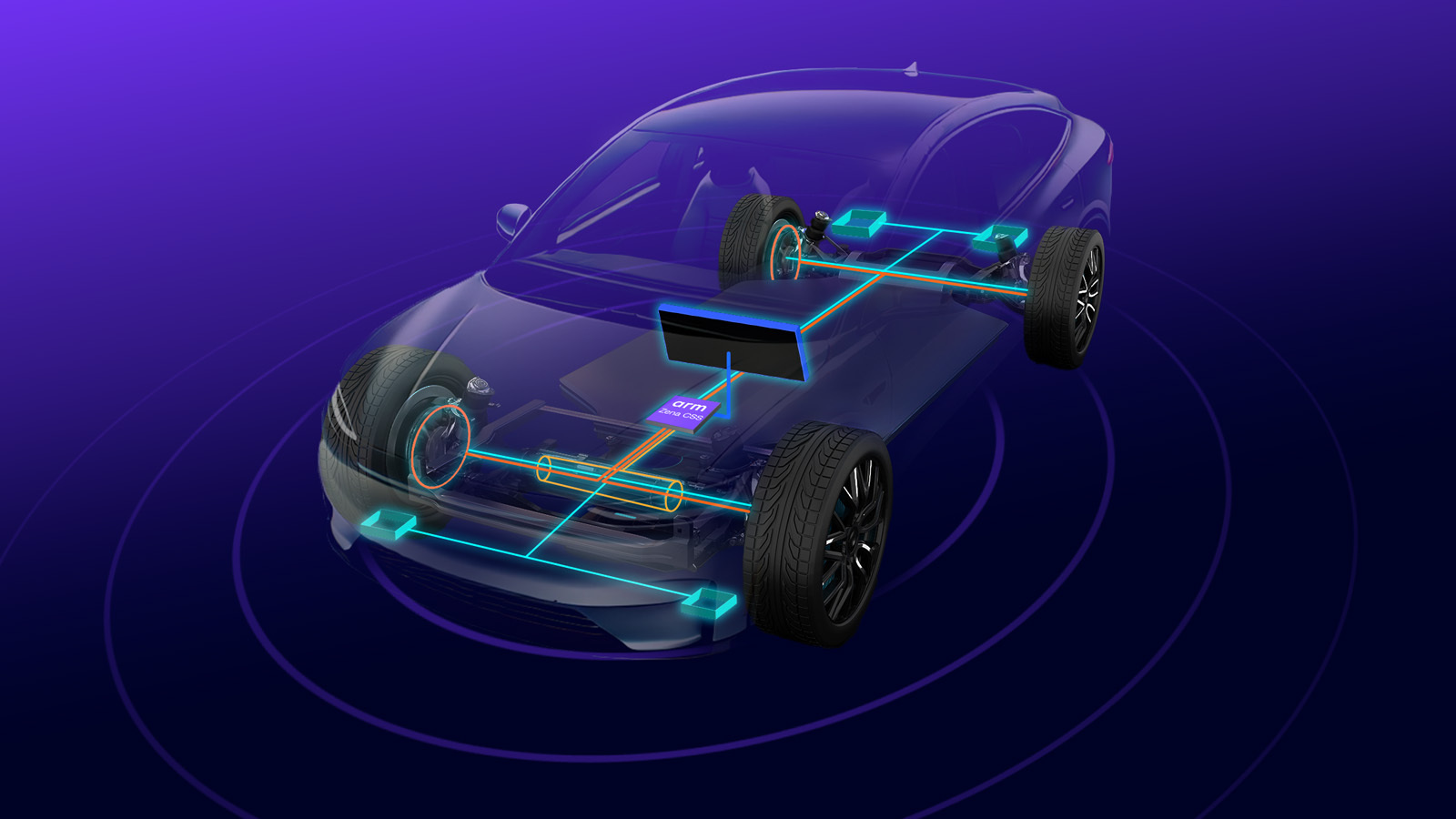
Source: Arm
By Bolaji Ojo
What’s at stake:
The automotive design and manufacturing systems are changing, with electronics driving a huge portion of what industry executives see ahead. With those changes also comes increased complexities that automakers are struggling to understand and leverage. With Zena, its innovative compute subsystem aimed directly at the automotive industry, Arm is creating what it hopes will be a much better solution to the challenges facing automakers. Zena, according to Arm executives, will enable “automakers to bring new vehicle models to market at least one year faster than traditional timelines.”
On June 4, Arm unveiled the Arm Zena Compute Subsystem (CSS) for automotive, marking a significant milestone in AI-defined vehicle development. The meeting, led by Dipti Vachani, general manager of Automotive Line of Business at Arm, provided a comprehensive overview of the capabilities of Zena, underscoring its potential to enhance efficiency, accelerate time-to-market, and support a cohesive software ecosystem.
In a follow-up blog posted on Arm’s website, Vachani goes on to list both the challenges and opportunities facing auto OEMs and how the IP company’s latest offering will help address some of these issues. Zena, Vachani, said, will help automakers reduce design time-to-market, improve and accelerate their software and silicon development cycles, provide critical support for the deployment of AI tools, and significantly slash development cost and complexity. Vachani said Arm expects most OEMs to develop their products using Zena CSS in the immediate future.
“To compete in the AI era, automakers need scalable compute, without compromising safety, power efficiency, or flexibility,” said Vachani. “Zena CSS reduces chip development time by up to 12 months and cuts silicon engineering effort by up to 20 percent per project, helping OEMs and silicon providers bring new vehicle models to market sooner with intelligent voice and touch interfaces, immersive digital cockpit experiences, driver assistance and automation, and real-time awareness.”

AI and automotive
Arm has been a contributor to automotive computing for over two decades, supplying critical technology to 94 percent of automakers and partnering with leading automotive suppliers. The industry’s transition from static, rule-based architectures to software-defined and AI-enhanced vehicles signifies a paradigm shift in intelligent mobility. AI models integrated into vehicles and cloud platforms facilitate real-time data processing, contextual awareness, and advanced in-vehicle infotainment systems.
Zena CSS will be used by Arm to strengthen and deepen its relationship with automakers. Arm executives said Zena CSS is designed to streamline silicon and software development, yielding a 12-month reduction in engineering cycles, and a 20 percent decrease in resource expenditures. As a pre-integrated, pre-validated solution, it enables OEMs to optimize development processes while prioritizing security and adaptability. The company said the core features of Arm Zena CSS include:
- A safety island equipped with real-time processing capabilities
- A security enclave ensuring data integrity and protection
- A scalable architecture that supports consistency across various vehicle models
Enabling software development
Software innovation is at the forefront of AI-defined vehicle advancements. Arm Zena CSS facilitates early-stage software development through virtual platforms, allowing developers to prototype applications ahead of hardware availability, according to Vachani. The Arm ecosystem plays a pivotal role in standardizing implementation across automotive and cloud environments, providing essential reference designs and development frameworks, the company said.
Zena CSS is not home free, though. Competing architectures and platforms are being considered by auto OEMs, some of these under development in-house or at automotive semiconductor suppliers. Questions are also coming up about how Zena CSS and rival platforms will deal with issues related to the incorporation of artificial intelligence in software-defined vehicles, as well as how automakers will address other semiconductor integration strategies.
Arm Zena has broad implications for autonomous driving, according to analysts, but it is not yet possible to define how the relationship will unfold, they said. For now, though, observers appear to give Arm Zena high marks for its ability to streamline AI workloads, reduce development complexity, and bolster collaboration across automotive and technology sectors.
Bottom line:
The introduction of Arm Zena CSS marks a critical step toward the widespread adoption of AI-defined vehicle technology. By fostering innovation, enhancing efficiency, and supporting a robust development ecosystem, Arm Zena CSS is positioned to reshape the future of intelligent mobility. The next question for the company is how automakers will respond to this offering at a time they are dealing with many other issues related to architectural changes and a stiff competitive environment.
Related articles:
Arm Doubles Down on AI, Chiplets With Neoverse Update
Glazed with AI, Arm Market Value Soars
Arm vs. Qualcomm Marks the End of an Era
Bolaji Ojo is founder and editor-in-chief of Techsplicit. He can be reached at bojo@techsplicit.com.
Copyright permission/reprint service of a full TechSplicit story is available for promotional use on your website, marketing materials and social media promotions. Please send us an email at talktous@techsplicit.com for details.
